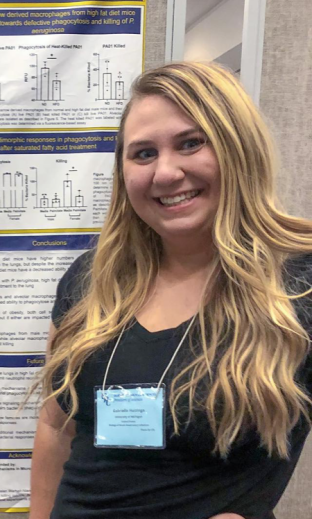Biography
Research Interests
Research in the Singer Lab is focused on understanding the influence of diet-induced obesity on hematopoiesis and the generation of activated macrophages that lead to metabolic disease. Understanding the immune physiology after high fat diet exposure in mice and translating these findings to pediatric obesity will lead to future therapeutic and dietary interventions. Current projects in the laboratory focus on
1. Sexually dimorphic inflammatory responses to high fat diet
2. Mechanisms driving hematopoietic stem cell myeloid differentiation after high fat diet exposure. This work in mouse models uses bone marrow transplantation, stem-cell analysis techniques, and metabolic profiling.
3. Translational studies understanding metabolic inflammation in pediatric populations.
Research Opportunities for Rotating Students
1. Sexually dimorphic inflammatory responses to high fat diet
2. Mechanisms driving hematopoietic stem cell myeloid differentiation after high fat diet exposure. This work in mouse models uses bone marrow transplantation, stem-cell analysis techniques, and metabolic profiling.
3. Translational studies understanding metabolic inflammation in pediatric populations.


